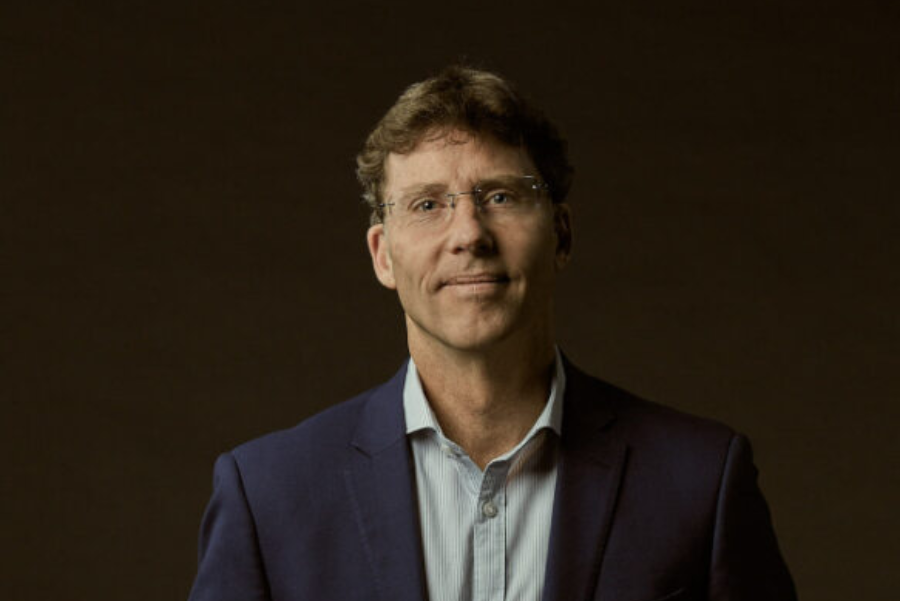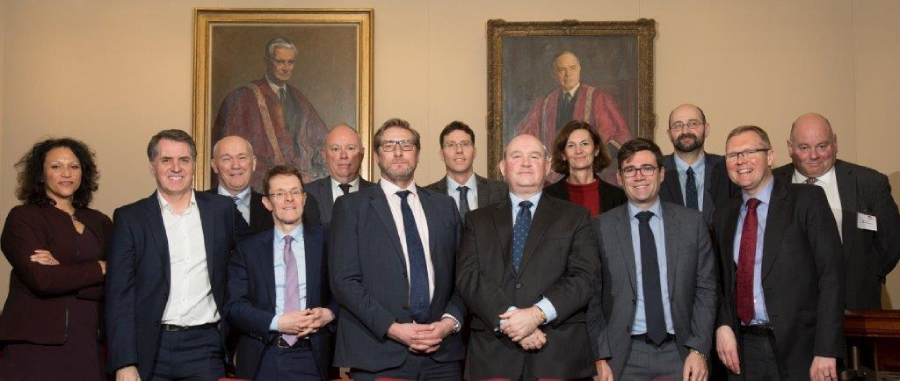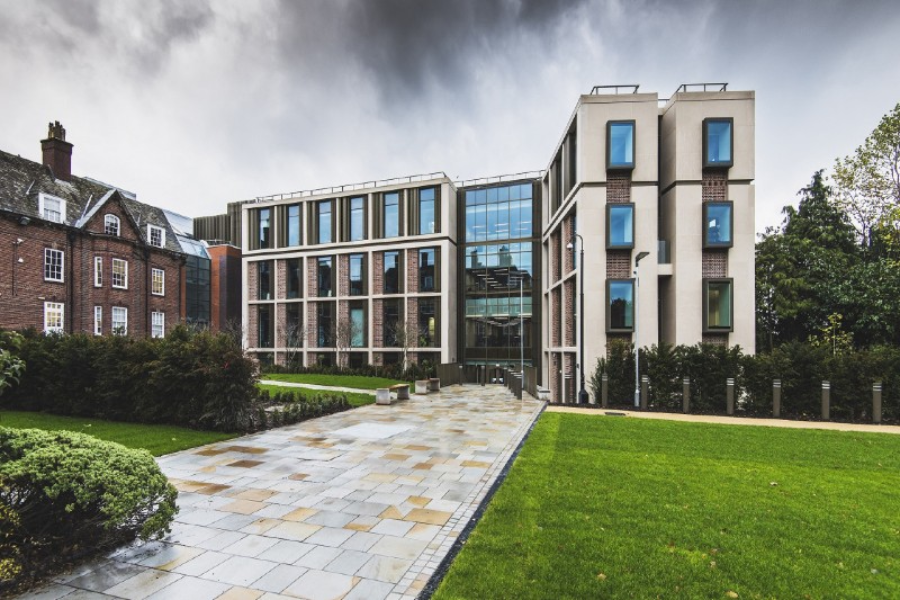
Simon Collinson reflects on his time at the University of Birmingham before he leaves to embark on his next big adventure.
After nearly 12 years at the University of Birmingham (UoB), I am leaving to join Zhejiang University (ZJU) in Hangzhou, China, to continue my research on innovation and local economic growth. This will be quite a change! A big adventure with new challenges and opportunities.
I have been asked to reflect on my time at UoB, so here goes…
I joined the University in 2012 as the new Dean of the wonderful Birmingham Business School, which has grown since I stepped down to become bigger and better. Triple-crowned, higher ranked, with stronger teaching and research and a fundamental dedication to responsible, ethical business.
That role was a steep learning curve for me. Business schools are big and complex, balancing large-scale teaching programmes with multidisciplinary research and international partnerships. They carry a lot of responsibility, not least to secure income for other parts of the university system, which influences how they are perceived and treated in this system. Much of this will change in the near future as international student markets restructure.
My next roles felt similarly challenging, as the first-ever Deputy Pro-Vice-Chancellor (DPVC) for Regional Engagement, working with the University leaders and representing UoB to build stronger relations with local partners. This was split 50-50 with my role as Director of City-REDI, which I launched as Dean of the Business School. More steep learning curves.
I owe a great deal to colleagues across UoB who have supported me in both roles. I was also helped by the natural complementarities between these two functions. Aligned and mutually reinforcing, with the same goal, to help the Birmingham city region. City-REDI gave me the evidence, insights and credibility to be an effective representative for the most important university in the region at the local level but also nationally and internationally.
The focus of these past years has been to build on our legacy as an anchor institution. This has been in the DNA of UoB since the days of Joseph Chamberlain, but it needed a boost and a refresh, which it was given. Led from the top, initially by Sir David Eastwood and picked up enthusiastically by Adam Tickell, who had the foresight as Provost to award City-REDI its start-up funding back in 2015. Our civic mission has been rebooted and our collective contribution to the fortunes of the West Midlands has grown. This effort, across the University, has benefitted from the emergence of City-REDI as a leading centre of excellence for helping city regions cope with a wide range of challenges.

City-REDI
City-REDI was able to attract funding and grow by developing an intimate knowledge of the West Midlands region. Through our experience of working with local stakeholders, we were able to extend to other city regions and expand our scope nationally and internationally. Although it sounds a bit grand, we have made a real difference. Respected as a go-to institute for robust, honest insights into inclusive economic growth.
Our partners, and some key individuals, dedicated to the region were inspirational drivers from the start. Andy Street (now Mayor of the WMCA city-region) and Steve Hollis, as leaders of the GBSLEP were champions from the beginning and consistent supporters of our work. Steve chaired our first Advisory Board in 2015 with Martin Reeves and Sarah Middleton. More recently Henrietta Brierley, Deborah Cadman, Delma Dwight, Tim Pile, Neil Rami, Helen Turner, Mike Wright and a host of others have helped us consistently focus on local priorities and celebrated our contribution to the region.
Our ambition, the core aim of City-REDI, has always been to ‘help city regions grow better’. Supporting policymakers to invest and intervene in ways that shape more productive, sustainable and (critically) inclusive economic growth pathways. As the capacity of regions like ours to create wealth (productivity) has stalled, and the distribution of wealth has become increasingly unequal (in most advanced economies, but particularly in the US and the UK), this challenge has become more difficult and more important to solve.
Bringing the idea of an institute dedicated to these aims to life has been difficult at times, but ultimately rewarding. Problem-led, it needed a new combination of interdisciplinary, multi-level, qualitative and quantitative expertise in an organisational structure we have come to define as a ‘hybrid’. Long-term, in-depth, robust and theory-driven academic research had to be aligned, connected, integrated with concise policy and practice insights, and continually tailored to fickle audiences. This underpins our distinctiveness.
To have an impact, we also had to be responsive to the changing needs of our stakeholders facing a series of socio-economic shocks. Adapting our outputs to fit the pace and format needed for different stakeholder types to access and use insights from our research and analysis.
Amongst others, I think one lesson that is particularly noteworthy for advocates of problem-led research is that ‘when we aim to become part of the solution, we often reveal more of the problem.’ This can create a tension with funders and many stakeholders. For example, one of our team developed a tool to predict which local constituencies are most likely to face an increase in homelessness. It seemed enormously useful, and we spent time making senior policymakers aware of the availability and benefits of the data and the predictive mapping tool. Although some policymakers engaged and used the model, many others were surprisingly closed to the opportunity, and it became clear that the political imperative not to draw (media) attention to homelessness was stronger than the need to disseminate evidence and approaches that would help predict and deal with the outcomes of inequality. Treading this careful line, and maintaining a robust objectivity as a ‘critical friend’ in external partnerships rather than just helping to publicise their triumphs, took surprisingly more effort than expected.
Perhaps equally surprising is that fewer academics than you would expect think that this kind of impact should be part of their remit. Of the relatively few academics (at least in my field) that do dedicate time and effort to building relevant, engaged, stakeholder-led research, many struggle and fail when faced with the practicalities of making it happen. This is an indirect testament to our University as a place that not only allows but also enables our kind of research to thrive.

What worked well?
It is flattering that many of us have been asked to reflect and write about the factors that underpin the success of City-REDI. I would do some things differently but probably stick to the following:
- Fill an important gap. Defining important, with the internal team, partners and stakeholders, and sticking to this as far as possible, is key. For us, this was the data and evidence that helped policymakers build better local growth pathways.
- Be different and distinctive in the ways you fill this gap and add value for stakeholders. This can come from new combinations of disciplinary insights, integrating academic depth with real-time problem-solving, new approaches, methods or tools. But the key test should be its value in helping solve the problems created by the above gap, relative to alternatives.
- Keep an eye on:
- Funding, because it is the lifeblood of a research institute and the only way to keep a great team together.
- The shifting politics and priorities of funders and stakeholders (because it is key to the above).
- Partnerships, as they can help extend and evolve your collective capacity to address important challenges (and secure funding).
- Your collective identity, reputation and credibility, evolve through your outputs, communications and messaging.
- The team that drives everything you do. Their interests, ideas, incentives, options and career pathways, and sense of purpose, all moderated by the organisation in which they operate, must be proactively and consistently nurtured.
The team that you help develop are the foundation of all the above, but also a big part of the reward.
It is important for me to say how significant City-REDI has been to me personally and professionally, and much of this is down to the great team we have become.
My thanks to you all!

This blog was written by Simon Collinson, former City-REDI / WMREDI Director, University of Birmingham.
Disclaimer:
The views expressed in this analysis post are those of the author and not necessarily those of City-REDI / WMREDI or the University of Birmingham.

Congratulations on your new position at Zhejiang University! Your reflections on your time at the University of Birmingham and your impactful work with City-REDI are truly inspiring. It’s evident that your efforts have made a significant difference in the local community and beyond. For those interested in innovative research and regional development. Best of luck with your new adventure in China! London Fit Out